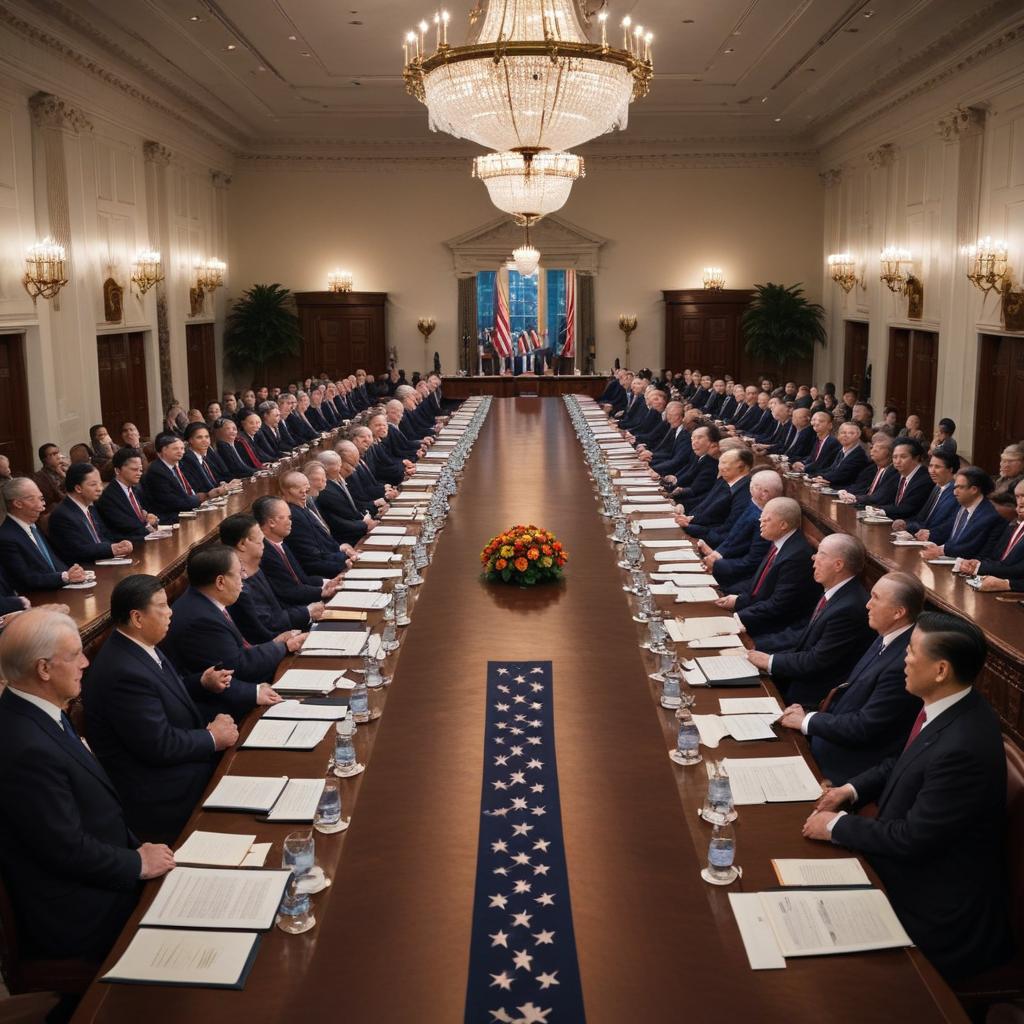President Trump unleashes massive reciprocal tariffs on 90 countries, including a staggering 104% levy on China, sparking a global trade war and sending Wall Street into a tailspin.
The US government implemented sweeping reciprocal tariffs, impacting roughly 90 countries. A significant 104% tariff was imposed on Chinese imports, following China's retaliatory 34% tariffs on US goods. This action adds to a 10% baseline levy already in place. The White House defended the move, stating it was a response to China's actions. The tariffs also affect US allies, with rates ranging from 17% to 25% on imports from countries like Israel, the European Union, Japan, and South Korea. These rates are based on the US trade deficit with these partners. The administration reports significant interest from foreign leaders seeking to negotiate lower rates. President Trump claims the US is generating nearly $2 billion daily from tariffs and is open to "tailored deals" with countries seeking relief. However, the tariffs have negatively impacted Wall Street, causing significant drops in major indices like the S&P 500, Dow Jones Industrial Average, and Nasdaq Composite, fueling recession fears. The tariffs will remain in effect until the administration deems the trade deficit threat mitigated.



